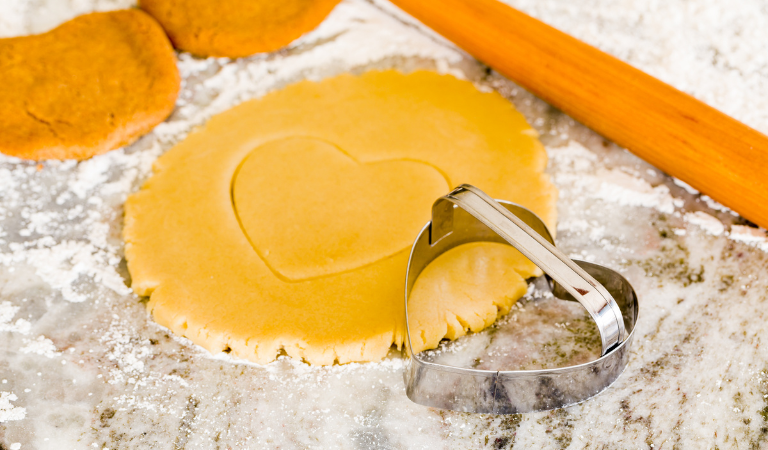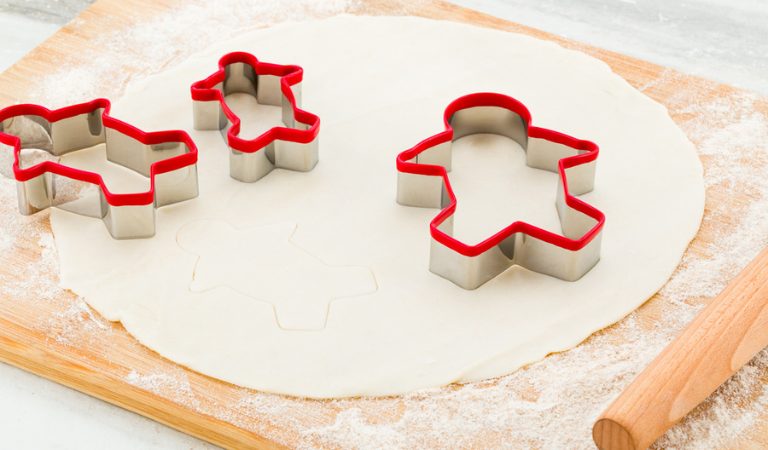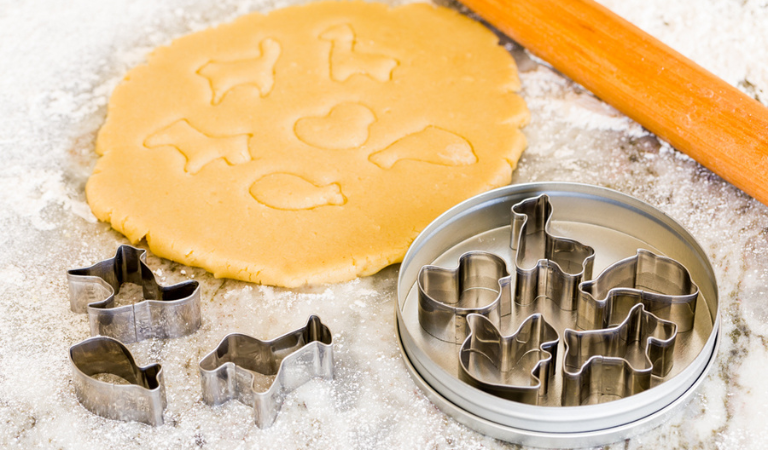Freshly baked cookies are a childhood favorite for many, and an irresistible sugar craving for others. Cookies serve as a crowd-pleasing addition to dessert tables at catered events, weddings, or other occasions. If you own a bakery or cafe, you might find that your delicious cookies are a best-selling item on the menu.
Whether you're a professional baker or a freelance pastry chef, creating perfectly shaped cookies can be challenging. Cookie cutters offer a simple and effective way to achieve clean, uniform edges. With a wide range of styles, sizes, and materials available, it's important to know what you're looking for. This guide outlines the advantages and drawbacks of different types to help you make a confident, informed choice.
What Are The Different Types Of Cookie Cutters?
The right cookie cutter depends on how often you bake and the types of cookies you make. Available in countless shapes and designs—from classic circles to festive icons and animals—there’s a cutter for nearly every theme and occasion.
Buying cookie molds in bulk sets offers variety and flexibility. Along with shape, consider comfort and ease of use when choosing a cutter. Below is a breakdown of popular types and what sets them apart.
Metal Cookie Cutters
Metal cookie molds are a traditional and reliable option for shaping cookies with precision. Popular among pastry chefs, they press smoothly into soft dough, making it easy to produce uniform batches quickly. Many are made from materials that are non-stick and dishwasher-safe, which helps prevent dough from sticking and makes cleaning more convenient.
Grip Cookie Cutting Tool
Grip-style cutters offer added comfort, making them ideal for frequent baking. Designed with a soft rubber top, they reduce hand strain while pressing dough and still deliver clean, precise shapes. While most aren’t dishwasher-safe, they’re easy to clean by hand.
Shape Cutters With Handles
Ideal for extended baking or streamlining preparation, handled cutters provide a secure and comfortable grip for pressing dough with ease. They are especially useful for home bakers working with children, offering better control and reduced hand strain. In commercial settings, the added stability ensures consistent, uniform shapes with minimal effort.
Cookie Cutting Tools With Grips vs. Cookie Cutting Tools Without Grips
Gripped Cookie Cutting Tools
-
Comfortable Grip: Designed with a cushioned top, these baking cutters reduce hand strain, making them ideal for longer baking sessions.
-
Great For Beginners: Offers better control and ease of use, perfect for those still developing their cookie shaping skills.
-
Kid-Friendly: Safer and easier to handle when baking with children, minimizing the risk of accidental injuries.
-
Helpful For Joint Pain: A good option for bakers with hand discomfort, arthritis, or muscle fatigue.
-
Best For Home Use: Ideal for casual or occasional baking, where comfort and control are more important than speed or force.
Non-Gripped Cookie Cutting Tools
-
More Pressure Control: Allow for firmer pressing, making them ideal for cutting through thicker or chilled dough.
-
Preferred In Commercial Settings: Commonly used in professional kitchens due to their durability and efficiency in high-volume baking.
-
Sleek And Simple Design: Easier to stack, store, and clean, especially when made from stainless steel.
-
Greater Precision: Often delivers sharper, cleaner edges for more detailed cookie shapes.
-
Versatile Usage: Can double as biscuit cutters or dough shapers for a variety of baking tasks.

What Kind Of Material Should I Choose?
Once you've chosen the right shape, selecting the right material is just as important. Traditional options include stainless steel and aluminum for durability and precision. For safer baking with children, plastic cutters are a gentler alternative. Your choice should align with your baking style and comfort.
Stainless Steel
If you bake frequently, stainless steel cutters are a smart, long-lasting choice. Commonly used in commercial kitchens, they offer sharp edges for clean cuts and are built to endure heavy use. Corrosion-resistant and dishwasher-safe, they make cleanup simple and efficient—ideal for busy bakeries or pastry shops.
Metal
Standard metal molds are ideal for intermediate bakers seeking clean shapes without the higher cost of stainless steel. They are lightweight, easy to handle, and efficient for producing multiple cookies at once. To preserve their form and finish, hand washing is recommended.
Metal cookie cutters are made from:
- Copper
- Tin
- Aluminum
Comparing Metal Cookie Cutting Materials
While metal cutters offer precision and control, their durability varies by material:
-
Copper: Attractive but prone to rust and warping after repeated use, making them less ideal for frequent baking.
-
Tin: Lightweight and affordable, but can rust if not dried thoroughly and may bend under pressure.
-
Aluminum: Rust-resistant and more durable than tin or copper, though still susceptible to bending if excessive force is used.

Plastic
Plastic biscuit cutters are a great buying option for those looking for a long-lasting and kid-friendly baking tool. Plastic dough cutters are made in all shapes and sizes, and most are lightweight and BPA-free. If you’re looking for an inexpensive option, a plastic cookie cutting tool still produces the same precise designs as other cookie cutters, without sharp edges.
Which Shape Cutter Works Best For Me?
Selecting the right baking tools is key to creating treats that look as good as they taste. If you're weighing your options, focus on finding products that align with your baking habits and personal preferences. When it comes to cookie cutting tools, consider factors such as style, shape, size, and material.
Not all cutters are created equal—each type offers distinct advantages. Durable materials like stainless steel and plastic provide long-lasting performance. Designs with rubber grips or built-in handles help reduce hand fatigue, while traditional models offer precise cuts for uniform cookies. Whether you're a home baker or a seasoned pastry chef, the right cutter can make all the difference. And no matter the shape, your freshly baked cookies are sure to delight.






